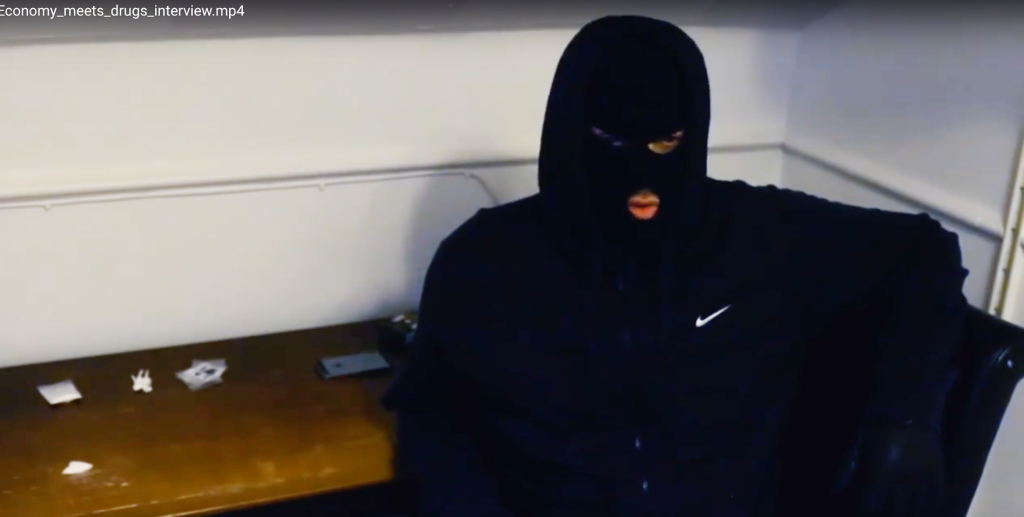Start talking about illegal drugs, and whether you mean to or not, you’ll soon start talking about the economy.
Illegal drugs are popular (about three million people in the UK bought them last year) and dangerous (2,504 people died from them in 2017). They’re how a lot of people make money (an estimated 70,000 drug dealers operate in the UK) and end up in trouble with the law (police recorded 141,714 drug crimes in 2016). Drugs make the UK richer (they add around £5.3 billion to British GDP) and poorer (they’re responsible yearly for £10.7 billion of crime, healthcare and criminal justice costs).
But none of these numbers really bring to life what being part of the drug economy actually feels like. Statistics can’t capture why users enjoy drugs, or why dealers are willing to risk jail for their career. And few people’s opinions of drug policy are based on how much money drugs put into and take away from the economy.
Instead, they might talk about how losing a family member to an overdose convinced them all drugs should be destroyed. Or they might point to racial and class biases in drug conviction cases as the reason all drugs should be legalised.
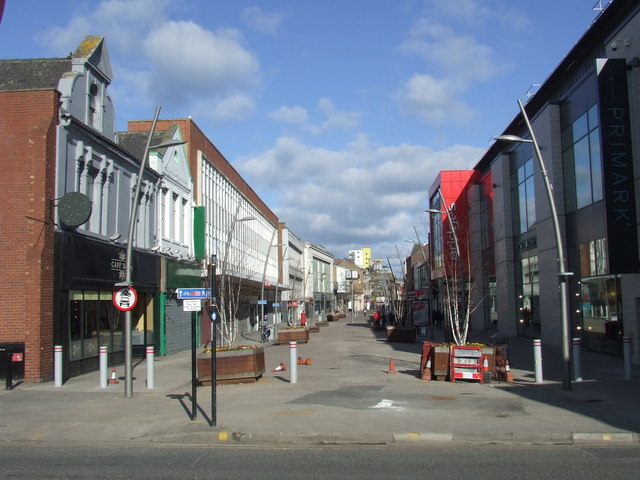
We wanted to talk to someone who has experienced the drug economy first hand.
That’s why, on a chilly day in March 2019, Economy travelled to Sunderland to find out what you think of the drug economy when it’s your day job. Alex (which is not his real name) is a tall, articulate man in his thirties, who is easy to get along with. He’s been a drug dealer for many years.
At the moment, Alex’s main gig is crack cocaine, which he makes himself in his London home and then sells around the North of England. We ride along with him as he made his deliveries, and he talks to us candidly about what life as a drug dealer is actually like.
Outside the car, it’s raining and the streets seem deserted apart from a single man who walks swiftly towards us, woollen hat jammed low over his face. Alex rolls down the window, hands the man a package, and drives off. The whole thing takes under thirty seconds. No words are spoken.
“It’s important not to romanticize and fetishise this industry” Alex later tells us, peering out from the homemade balaclava we’ve constructed to protect his identity while we film him. “It’s not as luxurious as it looks.”
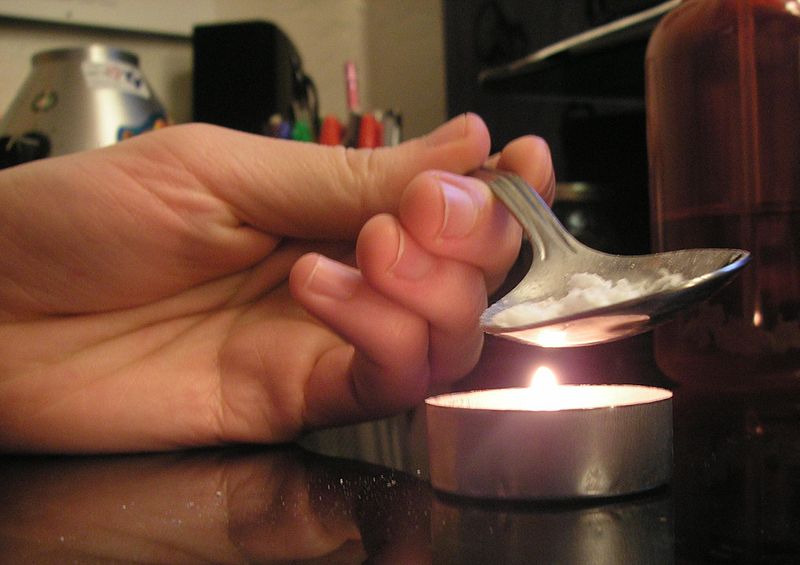
We want to know if Alex thinks of his drug dealing as a ‘job’, akin to being a bartender or pharmacist. Would he describe himself as employed?
Alex considers the question. “I don’t really think about it like that in such official terms” he says. He thinks for a minute. “Yeah, I’m employed. Self-employed”.
Indeed, talking to Alex sometimes feels like talking to the techie freelancers who inhabit the start-uppy corner of Hackney where the Economy offices are based. Like them, Alex is concerned about the lack of job security and workplace benefits (“obviously I don’t get a pension”) but thinks it’s worth it for the chance to be his own boss, set his own schedule, and make money for himself rather than for someone else.
Just like most Millennial employees, he seems tethered to his iPhone, the soft buzz of which regularly interrupts our conversation. Each time Alex automatically glances at it; occasionally he pauses his train of thought to shoot off a quick reply. Being readily available is an important part of the job; drug users tend to want to get their hands on the product quickly. “We’re 24/7” Alex says, a touch proudly. “Christmas is the busiest time of the year for us.”
Later in the day, Alex introduces us to two other men who he runs his operations with. They all have their own roles in making and distributing the drugs, Alex says, but they’ve all very much equal partners. Replace the word “crack” with “craft beer” and they would sound like co-founders of an exciting new start-up. “What we’re trying to do, we’re trying to make all our money at once,” Alex says. “We want to retire young.”

Alex reckons he makes about £10,000 a week selling drugs. That’s a lot of money. According to the Office for National Statistics, the average weekly wage for full-time British workers is £569. If Alex earned that money legally, he’d have to hand more than half of it over to the government in income tax and National Insurance. For Alex, avoiding that is one of the main appeals of his work: “I don’t wanna be the taxman’s bitch,” he shrugs.
Not everyone will agree with that sentiment. After all, if everybody skipped taxes as Alex does, the government would struggle to pay for things like roads and schools and the NHS. And the British public is particularly keen on taxing high-earners like Alex - 77 percent of them would like people earning over £150,000 a year to pay more tax than they currently do.
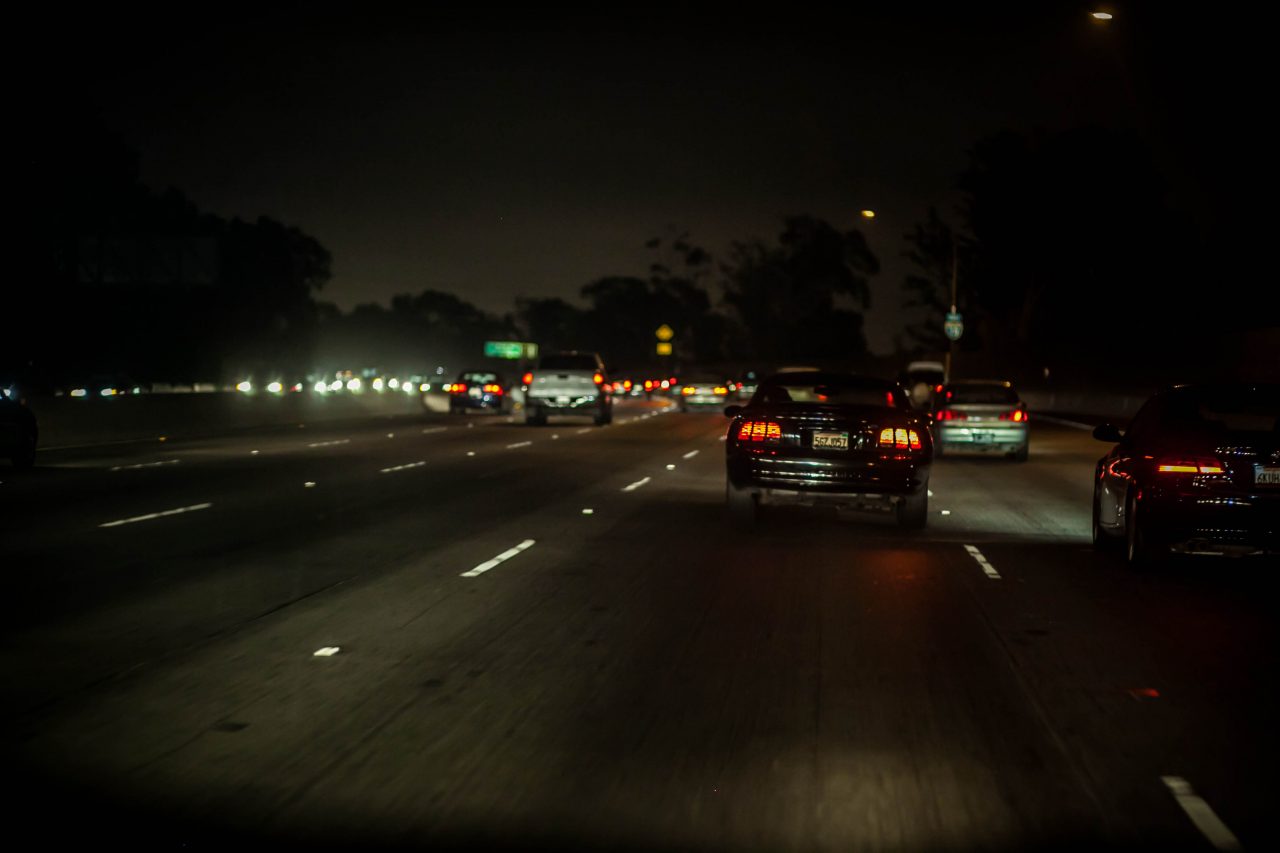
We ask Alex why he thinks people take up drug dealing. “Why wouldn’t you?” he replies. “You’re young, you need money...”
Some people might think this all sounds rather cavalier. But dig a little deeper, and there seems to be something more to it. When Alex describes drugs as “recession proof” we can’t help but think that, like us, he’s the right sort of age to have been entering the job market around the same time as the 2008 financial crash.
The same time, in other words, when thousands of people lost their jobs, thousands of businesses stopped hiring and unemployment rose to its highest level since 1995, with 8.5 percent of the population unable to get a job. And those figures don’t factor in the millions of people who were working but ‘underemployed’ - the term used to describe someone who is either working fewer hours than they’d like to, or whose work consists of tasks and/or salary below their skill set.
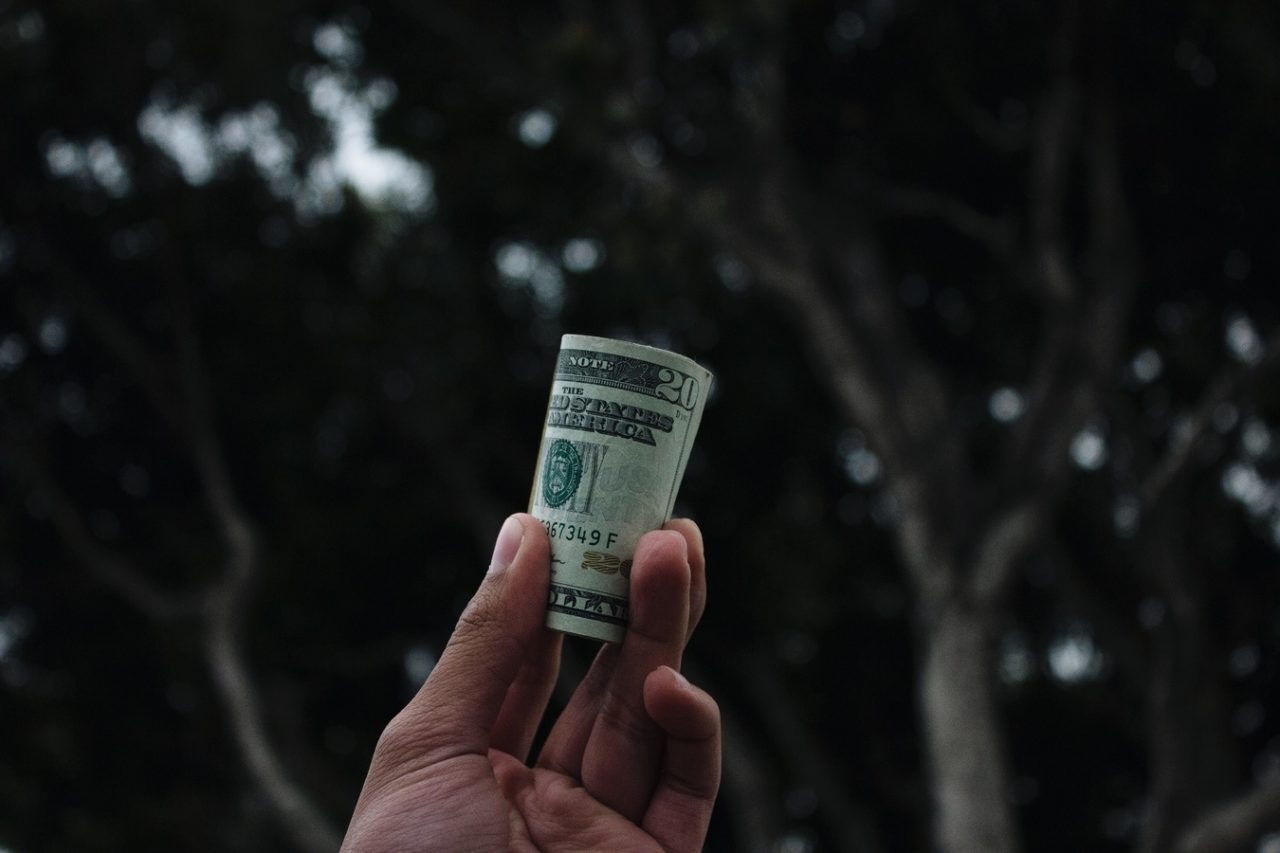
During the recession, the impact on employment options was worse for the people lowest down the socioeconomic ladder. While not all drug dealers come from poorer backgrounds, researchers have found “a clear connection between poverty and entrance into the drug market”, which they say is because the poorer you are, the more likely you are to “legitimise drug dealing as a viable alternative method of acquiring money and social capital.”
Alex says pretty much the same thing. Young people from poorer backgrounds, he thinks, see drug dealing “as a way out, a way to make that money, to better your situation”.
“If you don’t have an education, you don’t have work experience, it’s difficult to find a job” he muses. “And what’s the alternative? You can go on Universal Credit.”
Universal Credit is a welfare benefit for unemployed people on low incomes. The UK government introduced it in 2012 as a way to roll six separate benefits into one monthly payment. Universal Credit has been widely criticised for being more stingy than the old system and for delaying payments for weeks on end. Some claimants have ended up homeless or at food banks.
Alex certainly doesn’t think very highly of it.
“I know people on Universal Credit,” he says. “Just scraping by… having, you know, like a slice of white bread and a tin of beans twice a day, all day.”
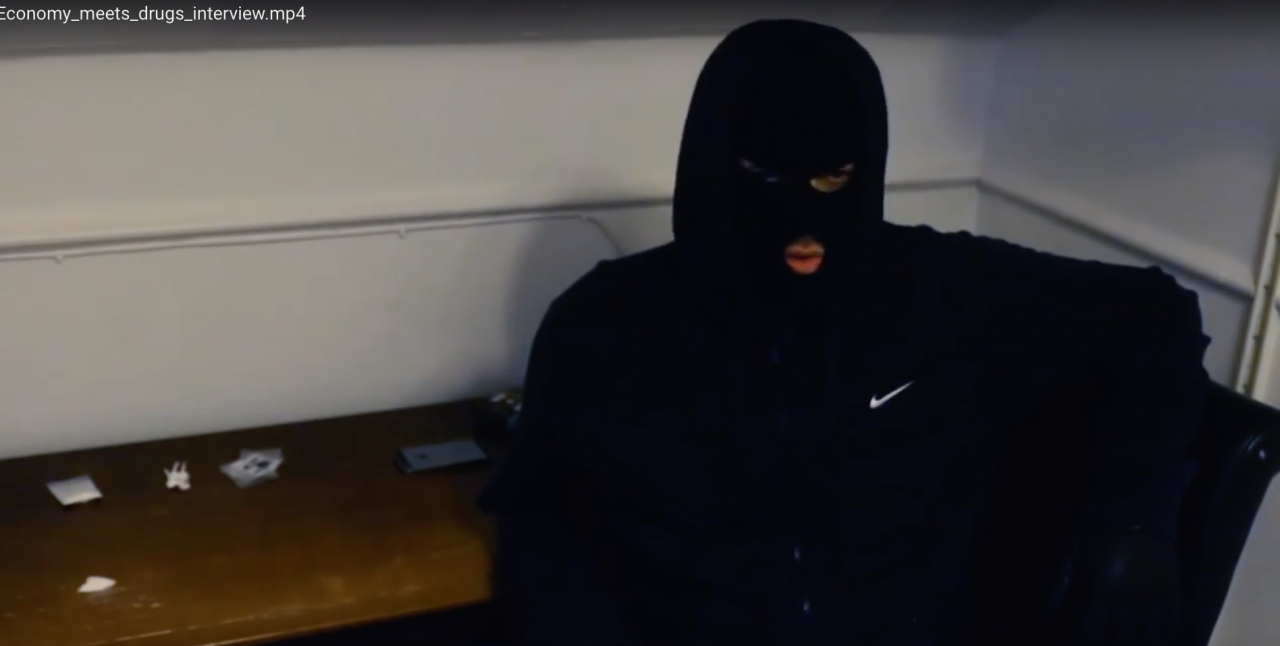
Indeed, Alex has no regrets about his chosen career choice. It might not be the Hollywood life of violence and glamour that some people think it is, but for him it’s still a good choice for people who want to get rich quick and avoid a life of corporate drudgery.
“I don’t want to slave away 'til I’m 67 so I can have ten good years of meals on wheels and getting like £300 a week from the Post Office,” Alex says. It’s a sentiment many of us would struggle to disagree with.
For him, it ultimately seems to come down to the fact that while drug dealing may have its downsides, the salary and other benefits more than make up for it. Just like any other job, in fact.
Alex sums it up like this: “We’ve got more risks… but the reward is higher as well.”




